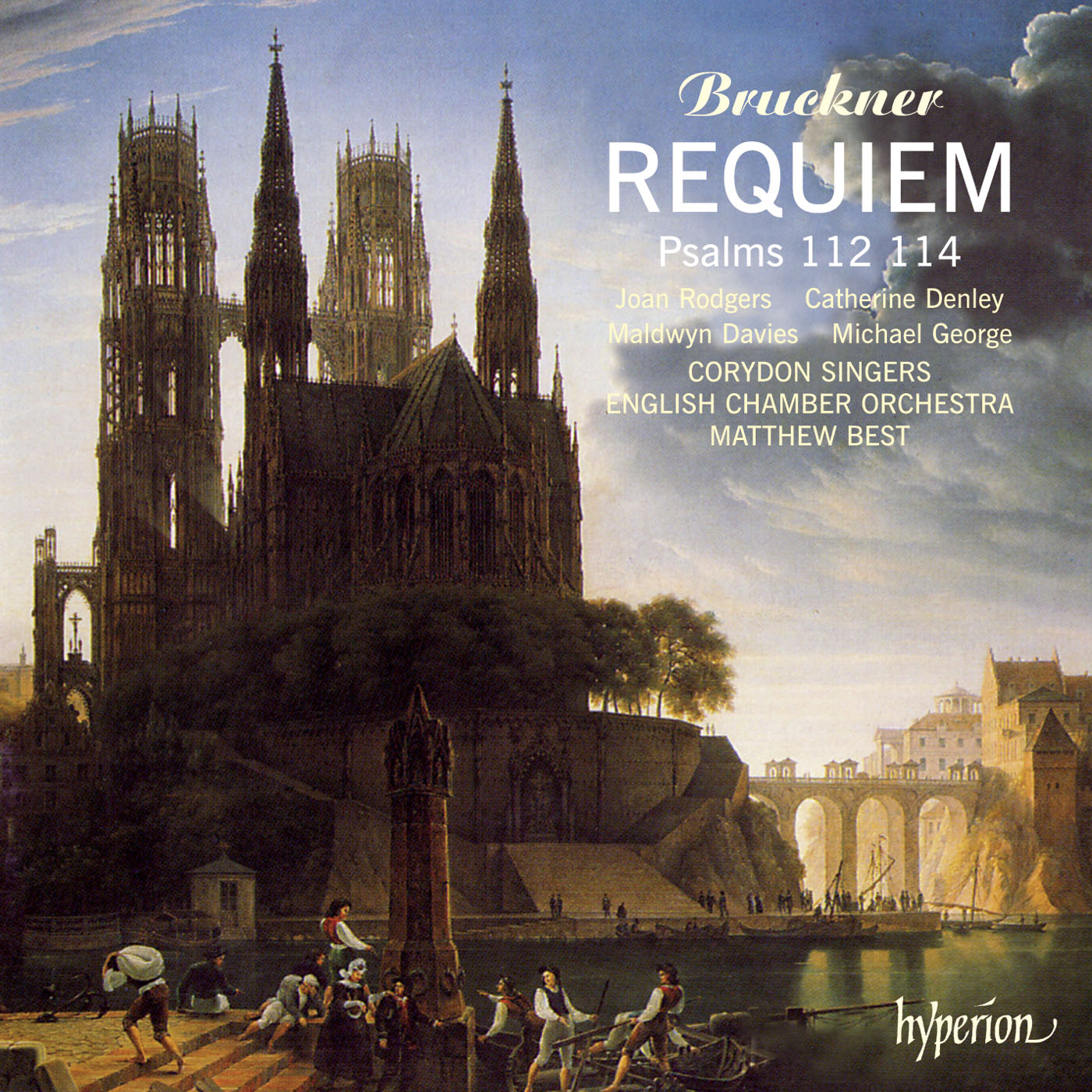Bruckner: Requiem & other sacred music
Corydon Singers, English Chamber Orchestra, Matthew Best (conductor)
CDA66245
Bruckner’s early Requiem of 1849 and the setting of Psalm 114 (really 116) were composed well before his long period of gruelling technical study with Simon Sechter, during which period he was permitted to compose almost nothing. That was followed by another stretch with Otto Kitzler, less prohibitive so far as creative work was concerned, but still severe; at this time he wrote the Overture in G minor, the ‘study’ symphony in F minor, and a number of choral pieces, including the substantial Psalm 112 (with orchestra) on this record. This period of deliberate creative abstinence has led to the belief that Bruckner was a late starter, that he wrote no music of worth before he was about forty. It is true that his greatest masses and his main development as a symphonist found fulfilment after this hiatus, and it is certainly probable that the enforced self-denial had incalculable psychological effects, on his personality as well as on his work. Nobody will ever be able to assess the mark all this may have left on his nervous system, which caused him much suffering during his life. His work, which represents a lifelong search for inner and outer peace, must have gained as a result; his natural indecisiveness and lack of confidence, though it brought about an obsession with revision (aggravated by the pressures on him by his well-meaning but disastrously mistaken friends), were part of a profound humility that eventually enabled him to achieve great things, free from self-regard.

